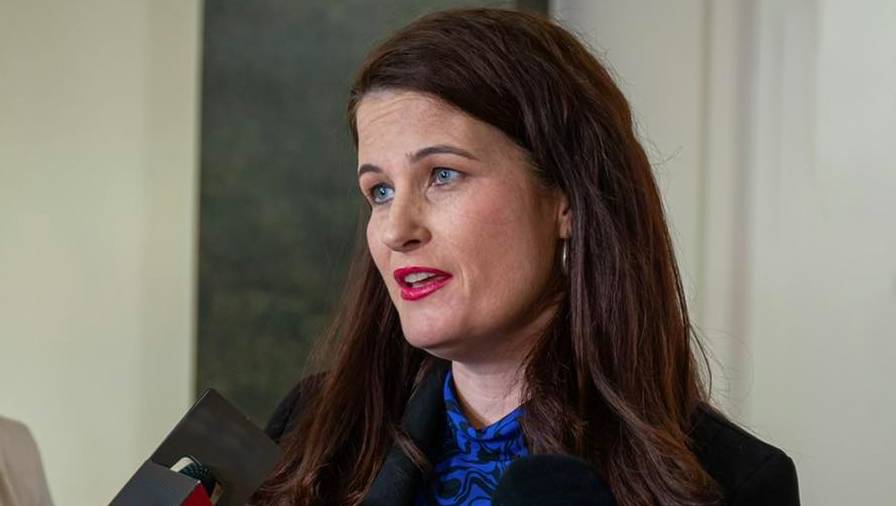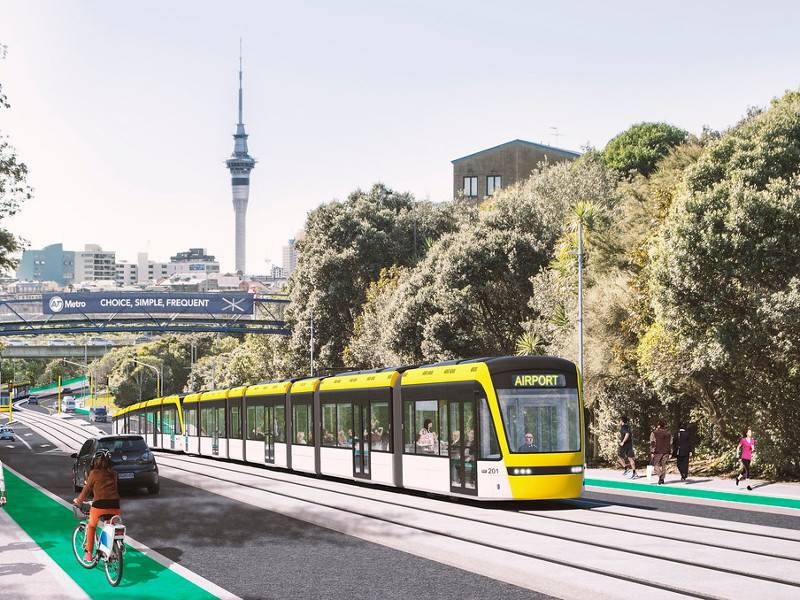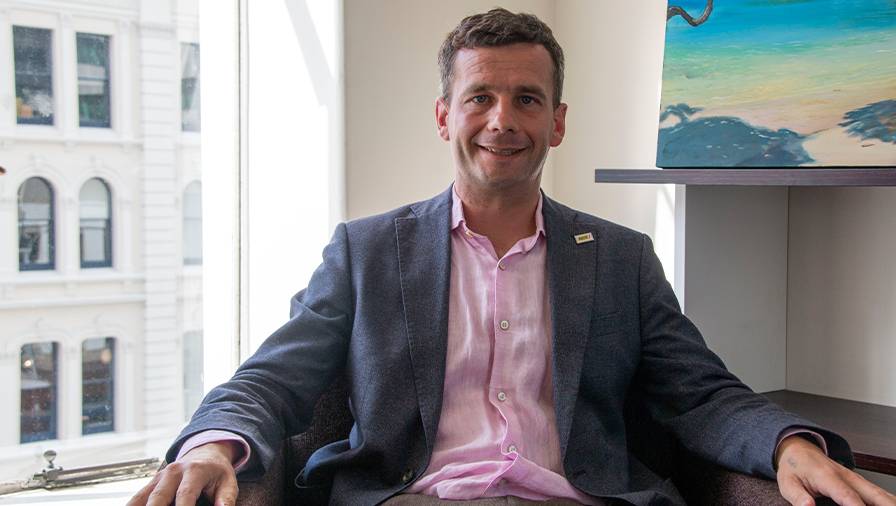

The Reserve Bank, the cyclone, taxes, climate change
ANALYSIS: Government faces challenge of how it pays for recovery from Cyclone Gabrielle.
NBR political editor Brent Edwards speaks with Grant Walker.


ANALYSIS: Government faces challenge of how it pays for recovery from Cyclone Gabrielle.
NBR political editor Brent Edwards speaks with Grant Walker.
Despite some economists calling on the Reserve Bank to pause interest rate rises in aftermath of Cyclone Gabrielle, it went ahead and raised the official cash rate to 4.75% this week.
It was at least a lower increase than the 75 basis point jump some had been expecting before bad weather hit the country.
But is the bank going too fast, too soon? Would it have been better to wait to see at least some more evidence of the impact of the cyclone on the economy?
While some costs will likely go up, the cyclone is likely to have a negative effect on economic activity, at least in the short-term. How quickly will affected businesses be able to get back to full production? Some orchards will take years to recover.
What might all this mean for unemployment, which shows signs of edging up anyway?
At the same time, it is only this year that many households on fixed interest rate mortgages will refix at much higher rates. This will likely have a depressing effect on their spending.
The cyclone also raises big questions for the Government. How will it afford to pay for the billions and billions – possibly tens of billions – of dollars in spending needed to fund the recovery and rebuild from the damage wrought?
Finance Minister Grant Robertson has got tongues wagging by his refusal to rule out some sort of tax to help pay for flood recovery work.
In Australia, after the 2010-11 Queensland floods, a 0.5% levy was imposed on income over $50,000 and 1% on income over $100,000. Those affected by natural disaster were exempt from the levy. The levy was temporary and only applied to income earned between July 1, 2011, and June 30, 2012.

Finance Minister Grant Robertson.
Robertson, when questioned on how the Government will pay for the rebuild, refuses to be hemmed in by any rejection of suggestions it might do something similar.
National has seized on his hesitancy.
“It is simply irresponsible for Labour to be plotting another tax grab at this difficult time,” National Party finance spokesperson Nicola Willis says.

National Party finance spokesperson Nicola Willis.
At the same time, Reserve Bank governor Adrian Orr is signalling more borrowing and more spending could be inflationary.
Just how the Government covers the cost of the recovery and rebuild, though, is not clear and probably will not be laid out in detail until the May 18 Budget. But the Australian experience after the Queensland floods does give a guide.
The Federal Government there contributed A$5.6 billion to the rebuild, with A$1.8b coming from the temporary levy, A$1b from delaying other infrastructure projects, and A$2.8b in spending cuts.
It is not hard to imagine the Government here doing a similar split, but also borrowing more to pay for the Cyclone Gabrielle recovery.
While National has criticised parts of the Government’s response, it has been difficult for the major Opposition Party to have its voice heard in the middle of a natural disaster.
Two voices were heard, however, but on matters that would have irritated National leader Christopher Luxon. First, MP Simon O’Connor pulled the plug on hosting a prayer meeting at Parliament, involving a group called Jesus for NZ.
O’Connor told Stuff he was a bit miffed about advertising for the event and “it wasn’t quite what I expected”.
Then list MP Maureen Pugh told reporters she was yet to see the evidence about man-made climate change, prompting a strong correction from both Luxon and Willis. Even senior MP Paul Goldsmith was noncommittal when asked about climate change, saying he was not a weatherman.

National MP Maureen Pugh questioned climate change.
Within hours, Pugh had put out a clarification saying she did believe in climate change.
It all helped spark day-long media coverage about National’s climate change credentials just a week after the upper North Island had been hammered by Cyclone Gabrielle.
It points again to a lack of discipline within National’s ranks. Surely its MPs know in election year not to distract from the party’s quest to win back the Treasury benches.
Somewhere in Auckland, a former National Party leader, Simon Bridges, will be chuckling as he recalls calling Pugh “f****** useless” in the infamous Jami-Lee Ross tape recording.
After a delay of a week, Prime Minister Chris Hipkins finally got to deliver his Prime Minister’s Statement to Parliament setting out the Government’s agenda for the year.
There appeared little in it that had not been announced previously by former prime minister Jacinda Ardern and there was little detail in the way of how the Government might reprioritise spending to put the post-cyclone recovery at the top of its agenda.
Even with an eye-watering spend-up needed to restore roads, Hipkins still has the Auckland Light Rail project on his agenda, although there was no sense of urgency about it.
Despite the cost of the cyclone, Auckland Light Rail is still on the Government’s agenda.
“This year we will continue progressing Auckland Light Rail and mass rapid transit in Wellington and Auckland,” he said.
There were few sparks in the parliamentary debate and first Question Time of the year, although Hipkins wrongly said the Government was taking less tax as a proportion of GDP now than when it first came to power.
Both Act Party leader David Seymour and Willis picked him up on that.
“While owning up to his mistake, Chris Hipkins arrogantly described yesterday’s Question Time as a ‘pop quiz’. He only got asked one question and the problem wasn’t the question. It was that he just made up the answer.
“If Hipkins isn’t prepared for questions about the basics – like the inflation rate and how much Government takes in tax – New Zealanders might conclude he isn’t prepared for the prime ministership,” Seymour said on Thursday.

Act Party leader David Seymour.
Meanwhile, the Green Party has been given some impetus by the cyclone, using its devastating consequences to push for greater action on mitigating and adapting to climate change.
There might be more on that from the National Party on Saturday as its Bluegreens forum meets in Blenheim. Luxon speaks in the morning and representatives from DairyNZ, Beef+Lamb, Forest & Bird, Fish & Game, and the Environmental Defence Society will be there.
Greenpeace executive director Russel Norman – a former Green Party co-leader and strident critic of his successor James Shaw – will also be speaking to the forum.
Sign up to get the latest stories and insights delivered to your inbox – free, every day.